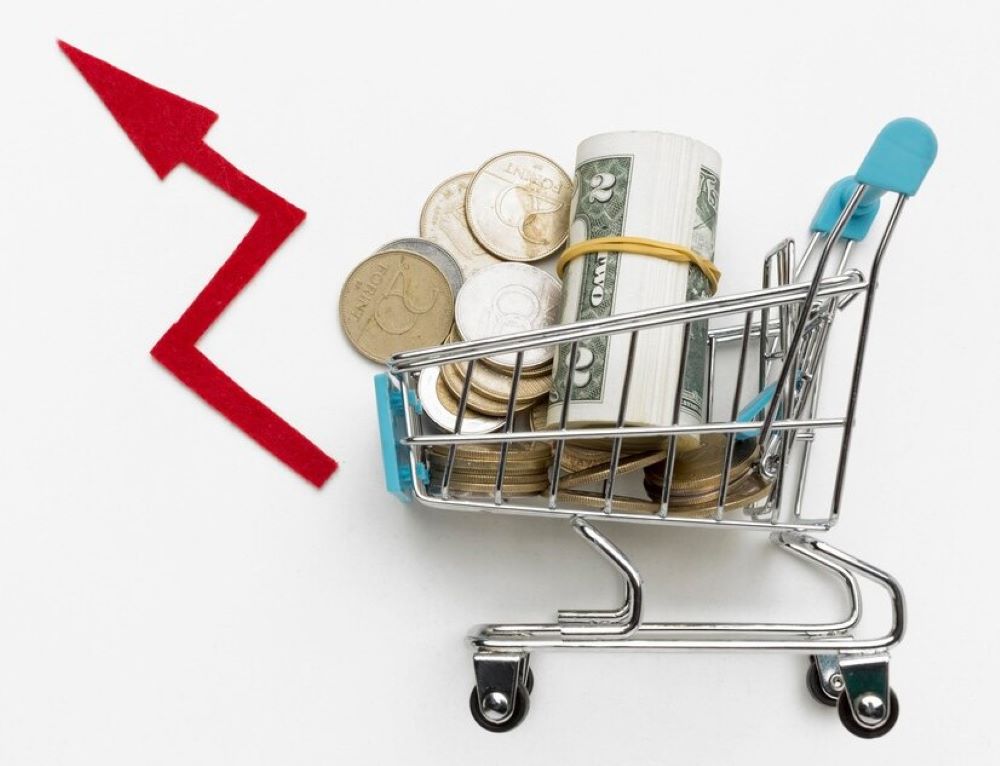With the continuous increase in the prices of essentially everything, many Canadians still can’t get over sticker shock. Just a quick glimpse at the price of a commodity would be enough to make them question whether they need to get a better-paying job.
Everything and anything, is on the rise. When the rate of inflation plummets and plateaus from time to time, some expect relief. Nevertheless, many have learned to adapt. That involves much more than tightening belts; it also means wisely investing in strategies that could help them save more.
What Causes Inflation?
When the value of a currency doesn’t do much or go far as it once did, that means you have to shell out more money to purchase a product. When that happens, this causes inflation. A small price hike is no cause for concern, but when the cost of other products increases, this causes a domino effect in the market.
Other causes of inflation include an imbalance in supply and demand. That happens when supplies of goods are limited, and there isn’t enough for everyone on the market. A disruption can also occur when a war takes place. For example, Russia’s invasion of Ukraine triggered inflation in many lands, disrupting the production of wheat and energy supplies. That’s not to undermine the wage increase that takes place in preparation for possible inflation; when wages rise, businesses respond by raising the price of their products, too.
How Canadians Are Faring
With inflation nearly at a nearly 40-year high, many small and middle-income families are implementing strategies to cope with the rising tide. In response to the rising rate of inflation, here are some actions Canadian consumers are taking to tackle it.
Cheaper Products
Canadians are buying discounted products now more than ever before. Gone are the days when people bought products at full price. In a recent survey by Capterra, 66 per cent of Canadians said that they only bought products that were cheaper, 80 per cent said they looked for discounted products, and 54 per cent said that they did more research before making a purchase of any kind.
Others are following a growing trend of delaying or stopping purchases that they don’t deem necessary until future notice. This allows them to save their hard-earned buck for a rainy day. The majority of Canadians have adjusted their spending habits to find new deals. Other frugal habits picked up by consumers include buying store-brand products more often and sharing more streaming subscriptions instead of pricey cable-based subscriptions.
Digital Finance Services
With every penny coming in being closely monitored many have opted to include financial tracking software and tools to help them budget wisely. Although 64 per cent of respondents in the Capterra survey are using traditional banking services to track their spending, many have started using financial apps. These apps help them track their spending wisely. Which in turn, allows them to set specific financial goals, such as saving money for an emergency fund or paying off a debt.
Although these financial apps weren’t popular years ago, they are now gaining increasing popularity in the aftermath of the pandemic and the global recession. Budgeting apps serve as a smart alternative to traditional banking services. Some apps even help respondents organize their payments and avoid overspending on their monthly budget.
Loyalty Programs
Loyalty programs are ever on the rise in Canada, even grocery stores have points and loyalty programs allowing you to save more. Many Canadians are making use of such programs by participating in them. That has caused an increase in the number of in-person consumers as opposed to online shoppers. While e-commerce shopping is still popular, in-person shopping allows consumers to track their spending habits easily.
Conclusion
Inflation is unwelcome news, but Canadians can not only blame themselves. Just looking back over the last couple of years will give you a glimpse of the world’s teetering economy. Disruptions from the pandemic to the war in Ukraine and policies that affect carbon pricing are all causes of concern.
Nevertheless, many Canadians are resilient and determined as ever before. Prior to the pandemic, many had enough money to spend, in its aftermath came a crisis of unprecedented proportions, shutting down factories and offices.
Regardless of how they choose to address the problem, the increase in prices is not a local problem but a global one; by employing the strategies above, global consumers can save more and do their best as they work their way through the painful path of fighting inflation!
David Messiha | Staff Writer




















